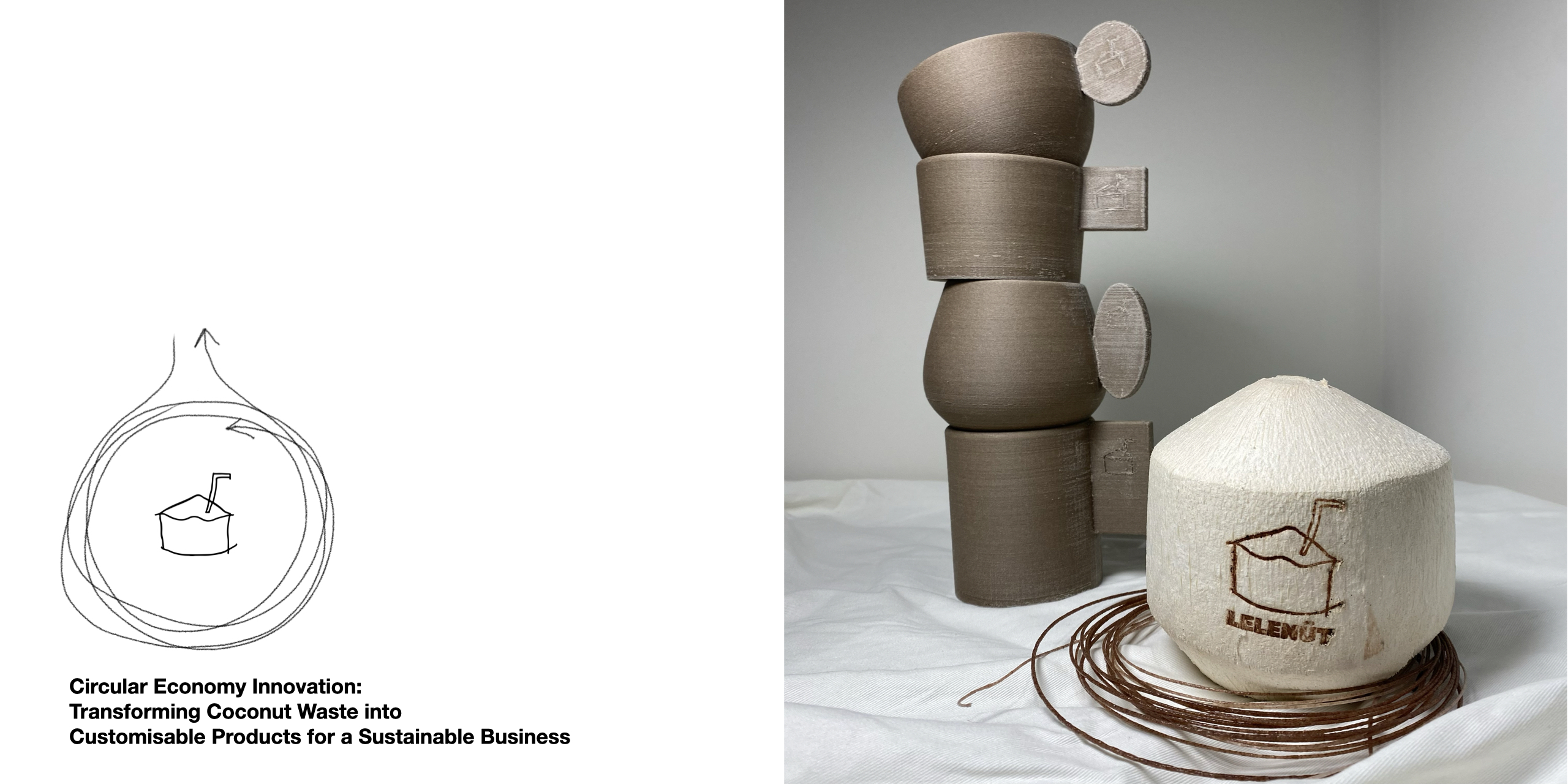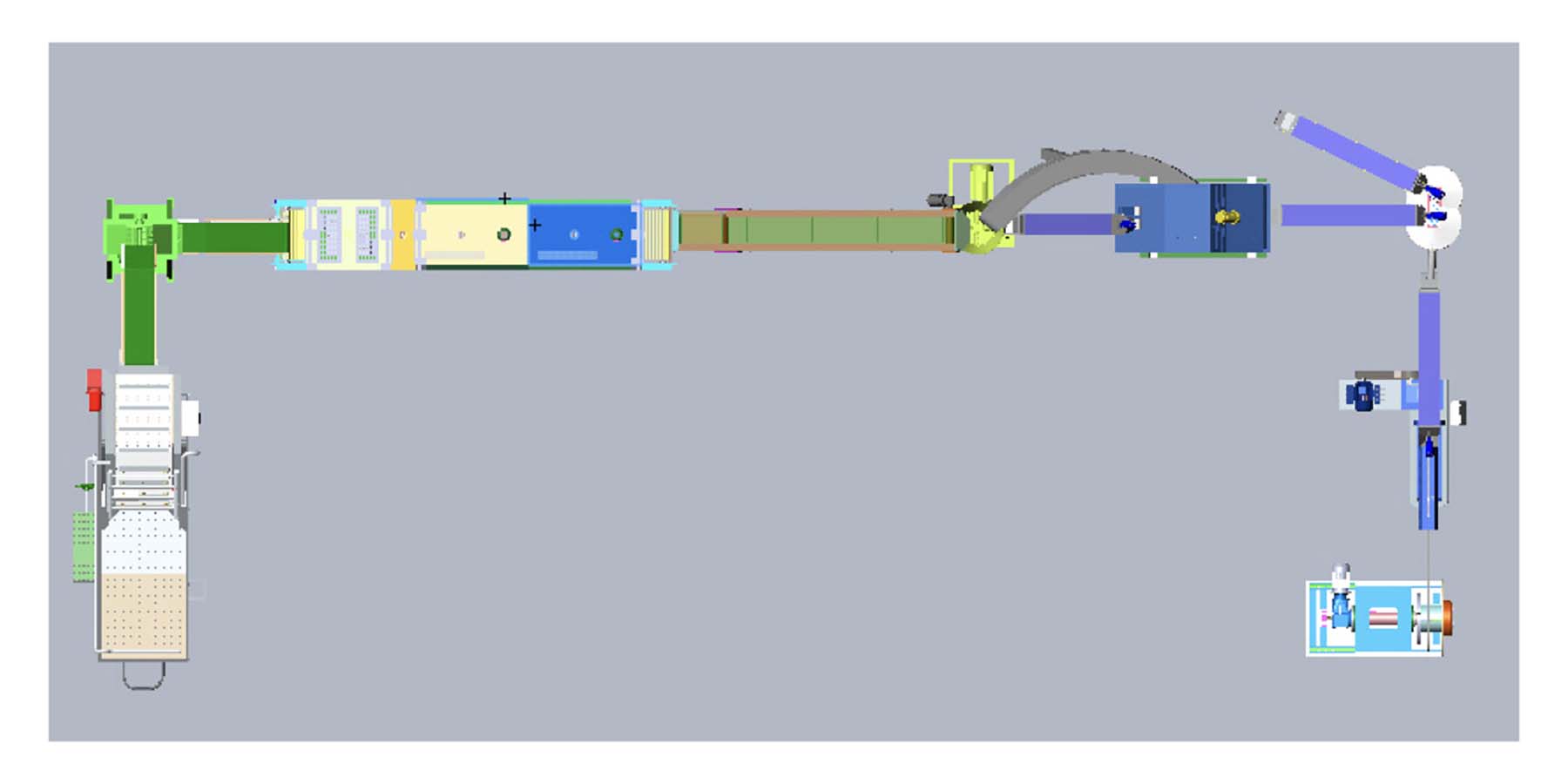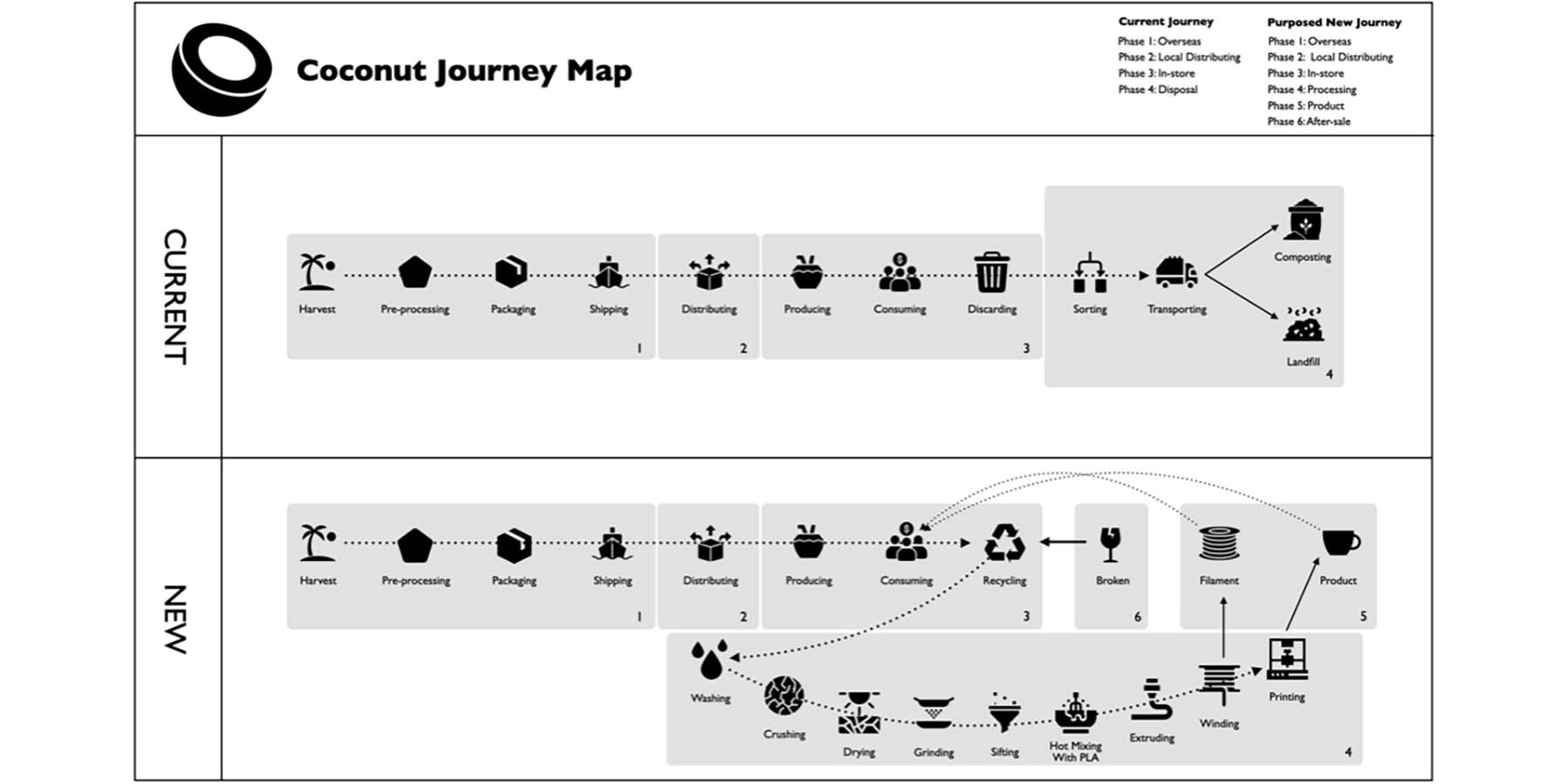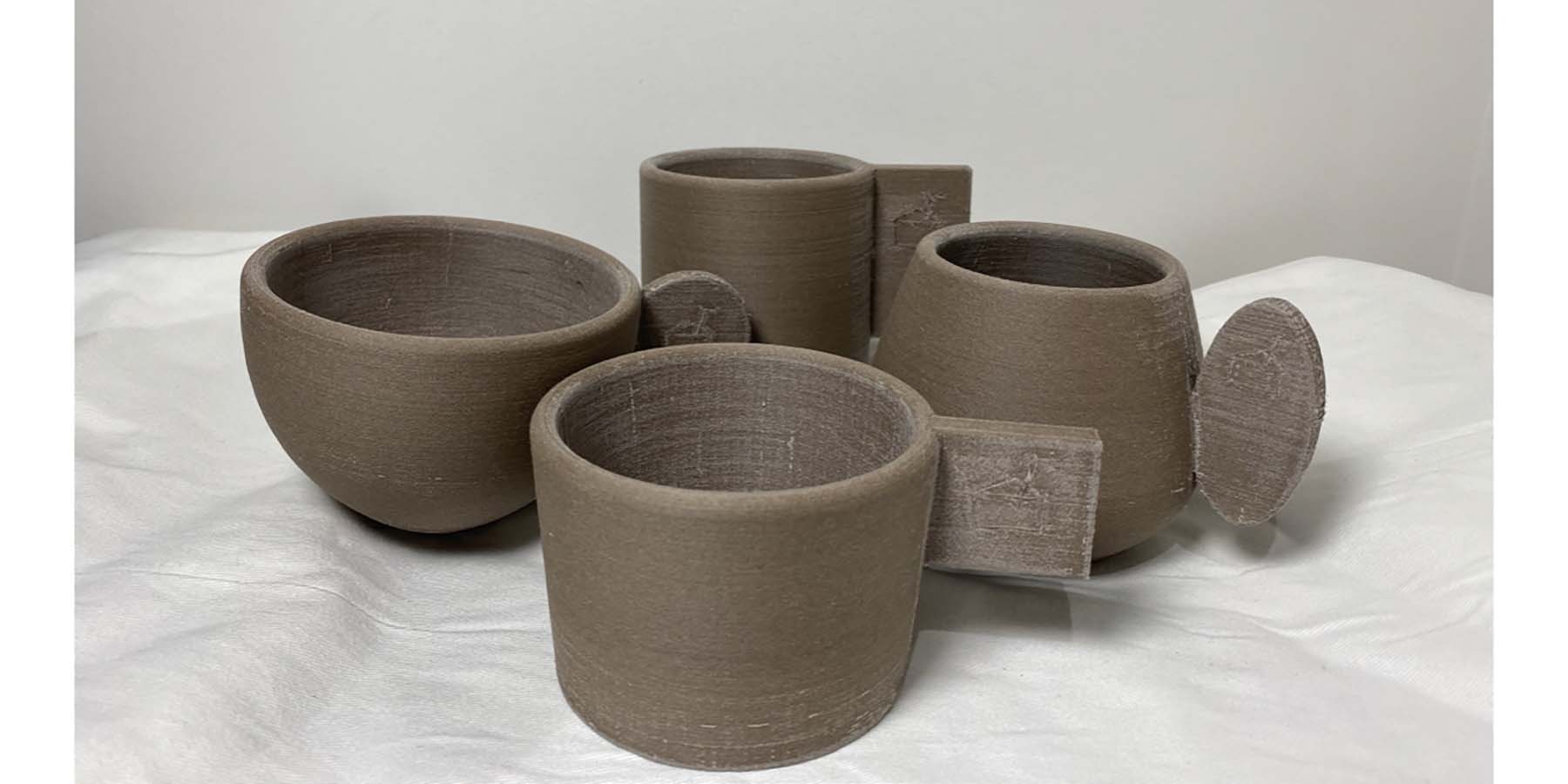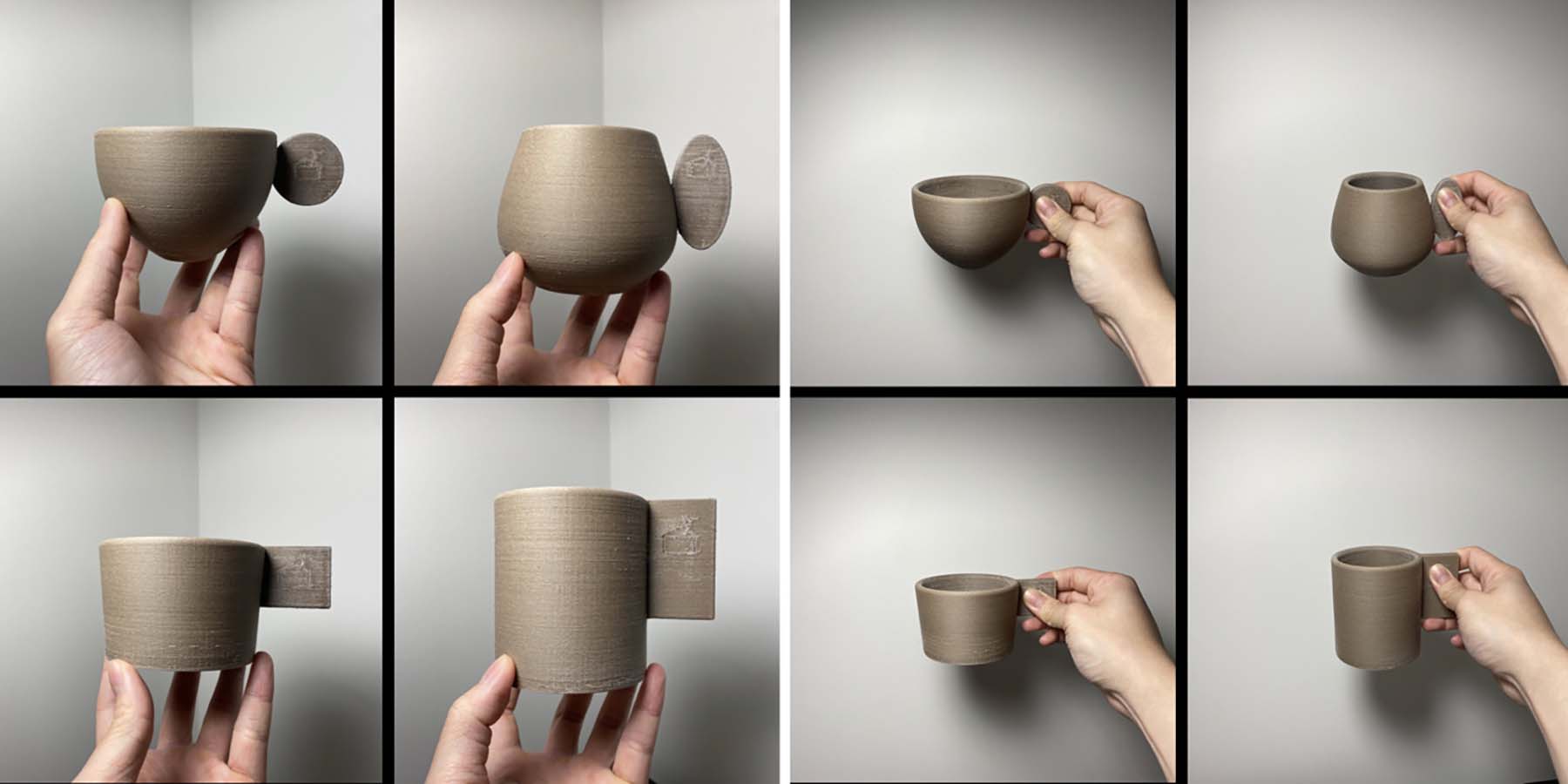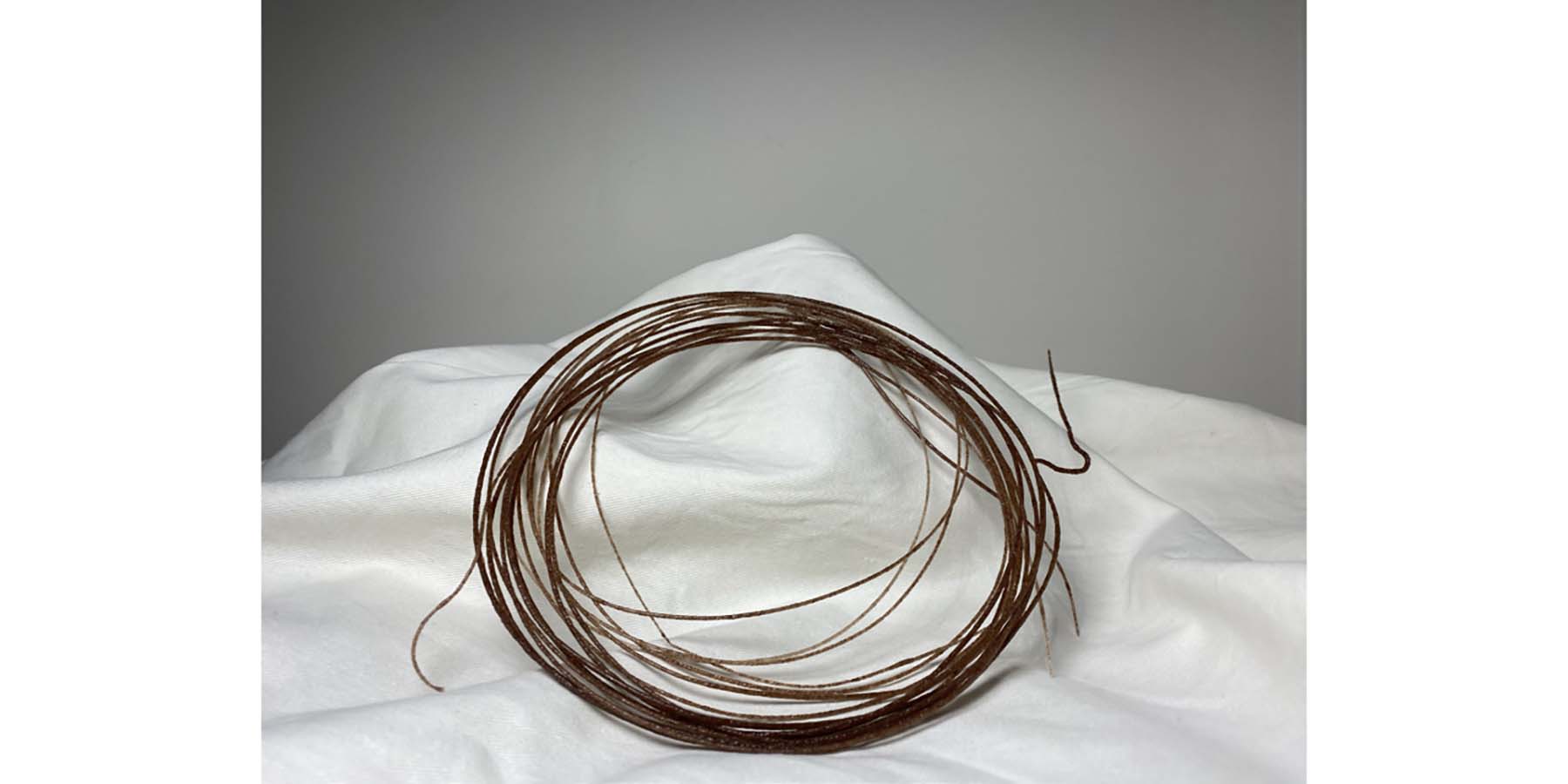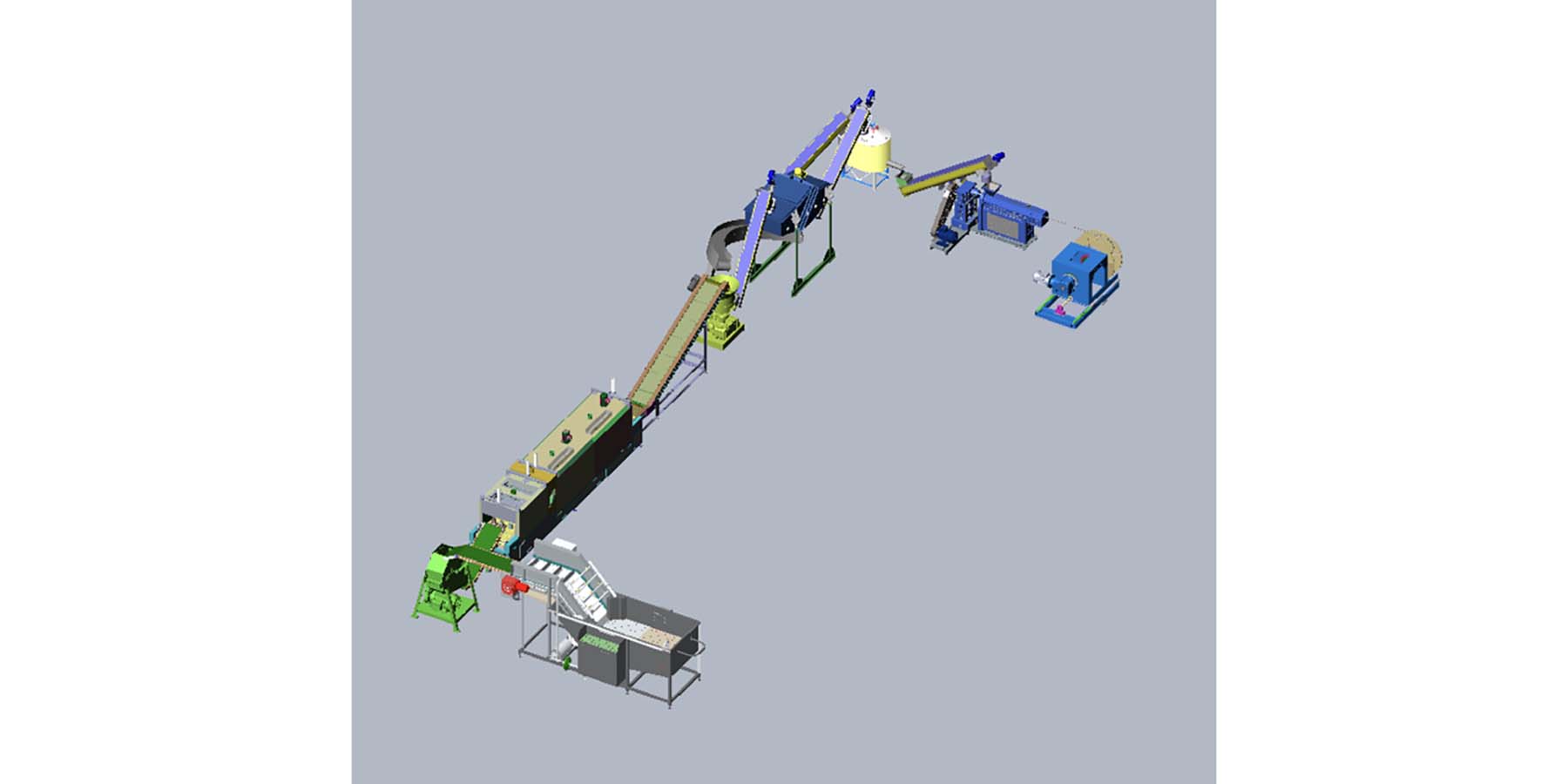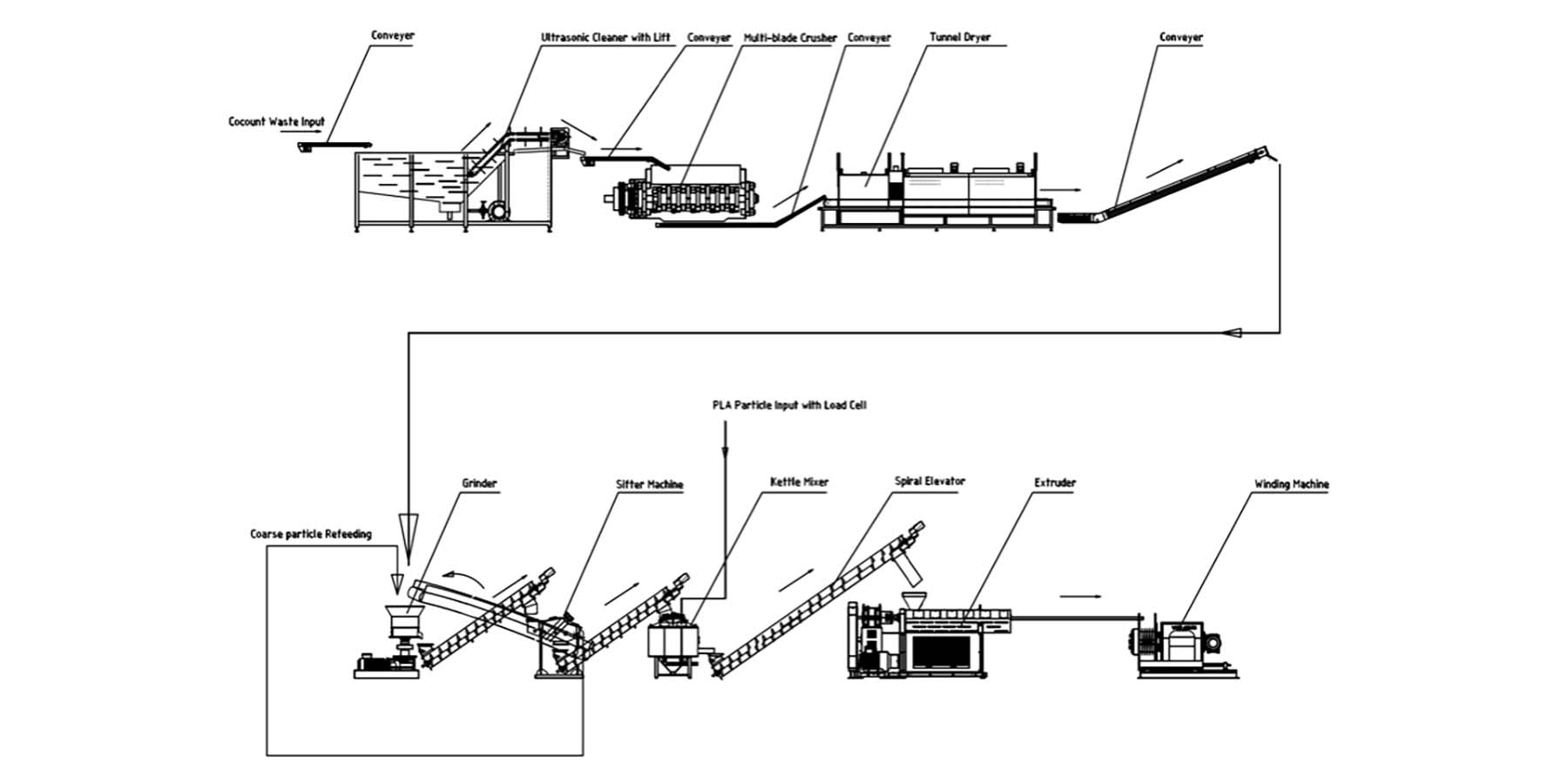The design process commenced with extensive research and information gathering about the current flow of coconuts in LELENÜT's operations. This helped identify areas for improvement and the basis for developing a feasible circular flow concept, aligning with the project's design brief.
Next, the project focused on the crucial step of converting coconut waste into reusable materials. Multiple experiments and tests were conducted to dehydrate the waste, leading to the creation of fine coconut waste powder. Through various treatments like washing, drying, oven-dehydrating, smashing, grinding, and sifting, the project successfully produced 3D printing filament using 9.1% coconut waste mixed with PLA, a 100% biodegradable material. This innovative approach showcased the project's commitment to sustainability and exceeded the design brief's expectations by transforming waste into a valuable resource.
With the filament in hand, I proceeded to create customisable products. Cups were chosen as the target object, and several iterations of drawings and CAD modelling were developed. The final design featured a set of four cups, each inspired by one of four basic shapes. The team used the coconut filament to 3D print the cups, achieving excellent outcomes that surpassed initial expectations.
For the final step, I developed a 3D model of a production line for the speculative flagship store. This theoretical mass-manufacturing process showcased how the circular economy system could be integrated into the store's operations, thereby meeting the design brief's emphasis on practical implementation.
Throughout the design process, the project demonstrated professionalism, attention to detail, and a continuous improvement mindset. By meeting and exceeding the design brief's objectives, the coconut waste circular economy system showcased an innovative, sustainable, and practical solution that can inspire businesses to adopt similar circular economy practices.

